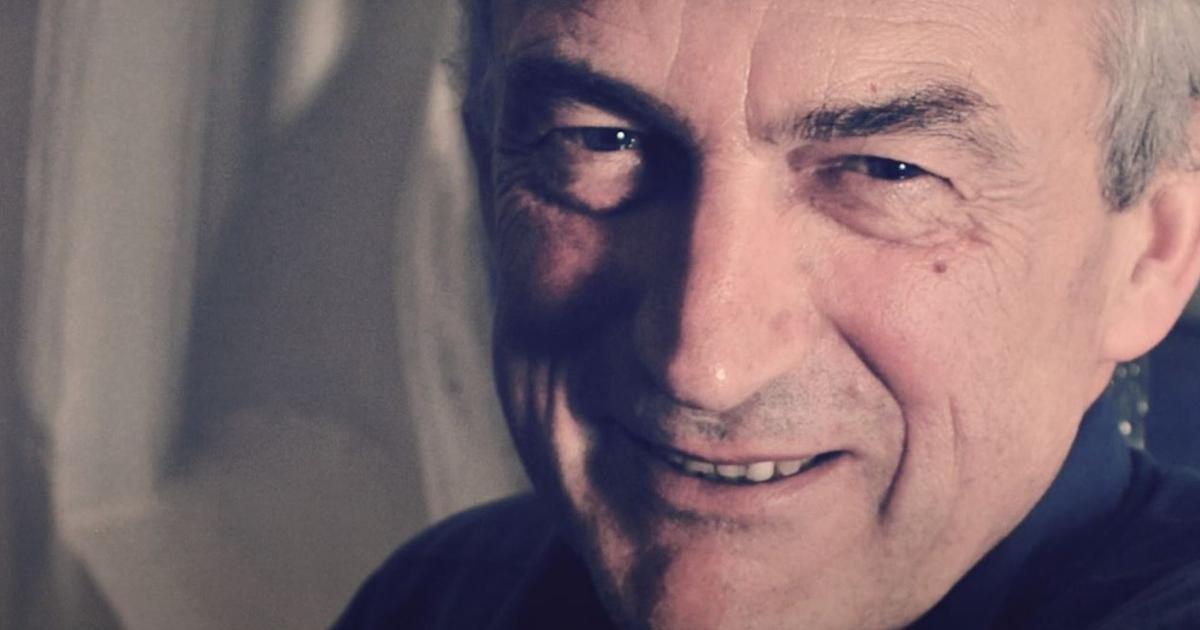The facts: at ten o'clock in the morning on Friday, June 13, 1980, in the city of Wylie (Texas), Candy Montgomery, a 30-year-old housewife, who attends daily mass and is very involved in community activities, went to to the home of her neighbor and friend Betty Gore to, in theory, ask her if it was okay for her daughter to go to the movies that afternoon with her family and stay the night.
In the space of time from when the visitor closed the door to when she opened it to leave, only Montgomery knows for sure what happened.
The neighbor can't tell.
Betty Gore's corpse was left lying on the ground, with marks of having received a total of 41 ax blows, and was discovered hours later by some neighbors who also found the deceased's one-year-old baby crying inconsolably in the cradle.
Candy Montgomery,
Star Wars:
The Empire Strikes Back.
The verdict: not guilty.
The investigation revealed that Candy Montgomery, who admitted to killing her neighbor and showering at the crime scene to clean the blood off, previously had an affair of just under a year with the victim's widower, Allan Gore, out of town. that day for a work trip.
According to the versions of both, the meetings ended months ago.
But, according to Montgomery, Betty Gore knew about the
affair.
and she still had a thorn in her, which is why during the meeting she suddenly brought an ax into the living room, in order to demand from the guest, a deadly argument from authority in hand, that she not get any closer to her husband.
The defendant alleged that the act of taking the tool from Gore and using it against her was in her own defense.
This statement passed the polygraph test with flying colors and the jury gave it credibility, much to the uproar of public opinion: 41 ax blows, for many, seemed too vehement self-defense.
Montgomery divorced her husband (who discovered her infidelity in the process) shortly after her, she reclaimed her maiden name and started a new life in another city as a mental health therapist.
More information
In the last 15 years there have been more serial killers in Spain than in the entire 20th century.
Because?
This is one of the favorite crime stories for fans of the subgenre in the United States.
After sparking controversy in the Texas environment, the case rose to national interest thanks to the book
Evidence of love: A true story of passion and death in the suburbs
(1984). , but hitherto unpublished in Spain), an investigation by journalists John Bloom and Jim Atkinson that instantly became a
best-seller.
In addition to the countless documentaries and special episodes on murder shows that followed, the book was adapted into the telefilm
Criminal Implication
(1990);
in the Hulu series
Candy: Murder in Texas
(2022) —which in Spain can be seen through Disney+ and which has a highly characterized Jessica Biel in the leading role— and, less than a year after the premiere of the previous one, it will have a new incarnation: HBO Max has announced the April 27 launch of the series
Love and Death,
with Elizabeth Olsen as Candy Montgomery and Jesse Plemons playing the victim's husband.
Despite the fact that the event took place more than 40 years ago, the pull of the story is evident.
It contains an unsolved mystery, a forbidden love story, an excitingly bland setting (the typical city and neighborhood where nothing ever happens, until it does) and a conservative and religious breeding ground inside a pressure cooker.
"I've done everything a woman is supposed to do: take care of the house, prepare the food... Where's my reward?" Montgomery asks Elizabeth Olsen in the Love and Death trailer, as we
watch
her character pick up the laundry, serve the dishes or recite the prayers in the Methodist church where she is a regular.
With Nicole Kidman as executive producer, the trailer does not point out substantial differences in approach with respect to
Candy,
which also favored the defendant's point of view.
However, the signature of screenwriter David E. Kelley, creator of hits such as
Ally McBeal
(1997-2002),
The Lawyer
(1996-2004),
Big Little Lies
(2017-2019) or
The Undoing
(2020), invites you to anticipate an accent on the legal and social dimension of the argument.
“Candy didn't mind taking care of the children and the house, but she was mad with boredom.
Therefore, on the day of her 29th birthday, it was a ray of light for her to receive a completely unexpected phone call ”, Bloom and Atkinson narrated in
Evidence of love
.
In the text, they underlined the state of deep and repressive ennui in which both she and her lover lived when they decided to start seeing each other, after Montgomery approached him with the proposal, he rejected it and, weeks later, backed out by phone. .
The writers also dedicated a few lines to the hypnosis session to which the defendant was subjected in order for the lawyer to find a way to justify those 41 ax blows: during the session a childhood trauma emerged related to Candy Montgomery's mother sending her to silence.
In the struggle for the ax with Betty Gore, for the reconstruction of the events that she offered the hypnotized, a "Ssssh!"
snapped by the neighbor would have triggered the cruelty.
dark reflection
“I keep saying that it was a crime of passion.
Wouldn't you like to love someone on that level?
And that this person loved you too?” asks one trial spectator to another at the climax of
Candy: Texas Murder.
The conversation, fictional, is an explicit and almost meta-referential irony about the role of viewers of the
true crime
subgenre (true crimes) and their addiction to gruesome stories: there is a degree of morbidity, but also another degree of identification with certain edges of certain stories, however abject they may be.
Candy,
by the way, was the most watched series on
streaming
during the week of its premiere in the United States according to Justwatch measurements
,
despite the fact that Hulu is estimated to have almost 30 million fewer subscribers in the territory than Netflix.
Image from 'Candy,' with actresses Melanie Lynskey (left) and Jessica Biel (right), respectively in the roles of Betty Gore and Candy Montgomery.©Hulu/Courtesy Everett Collection / Cordon Press
“I think it's a bit of the Jungian
concept
of the shadow [the archetype with which the Swiss psychiatrist Carl Gustav Jung defined the dark side of personality].
The world we have now pretty much denies the shadow, the bad, the anger and everything dark.
But the fact that we deny it and pretend on Instagram that we are super happy does not mean that this side does not exist ”, reflects, consulted by ICON, Mona León Siminiani, the quintessential voice of true crime
in
Spain with the
Audible
podcast
Do you speak fear?
and, before, with the Cadena Ser
Negra y criminal program,
both dedicated to adaptations of psychological intrigue fiction as well as exhaustive chronicles of historical crimes, nationally and internationally.
Siminiani thinks that
true crime
has reached a new golden age thanks to the rise and consolidation of the
podcast,
not only because of the modern structure established to "accompany people in the process who start to investigate with their little notebook and tape recorder." , but because "everything that is heard is a billion times more suggestive and terrifying."
But he also believes that it is related to the contemporary obsession with the image, “to look good and not be taken for crazy”.
“Soccer sometimes conveys anger, as bullfighting could do before, which is literally killing.
These impulses have to come from somewhere, and the bloody and sadistic stories of
true crime
they mean a break from all that positive face, so Yankee and so 'everything is fine' in which we are immersed and to which we are more slaves than we think”, he reflects.
This does not imply frivolization: “One thing is the event itself and another thing is the story.
What we consume is the story, what does the crime entail, what is the main theme, where does it leave us, who are we in relation to it.
They are like fairy tales for adults, with the same warnings not to talk to strangers, to beware of the boogeyman or the wolves in sheep's clothing, those friendly neighbors who always say hello and who happen to have people slit and buried. in the backyard."
“It's another thing to be killed,” he recalls, “that they subject you to this brutality or do that to someone you love or know.
There is nothing romantic or pretty about a murderer."
Candy Montgomery (Elizabeth Olsen) singing in her Methodist parish choir, in a still from 'Love and Death'. HBO Max
The actual parties attest.
The formerly known as Candy Montgomery, who is not legally a criminal nor has she been seen involved in any similar episode, is now 73 years old.
Her personal Facebook account, with the name she currently uses, has been inactive since 2021 and it is easy to understand why: the posts she has, related to her professional activity, are littered with comments insulting her and remembering the event.
The score of her as a therapist that she receives in the Internet aggregators is not good either, but it is doubtful if the votes are from clients or from
cyberbullies
that they have tracked it down.
Montgomery left the town of Wylie after the 1980 trial because her neighbors were yelling “Murderer!” at her, but also because of the scrutiny her personal life was subjected to.
For the bulk of Texan society at the time, adultery was an equally appalling crime and, in fact, at trial it was deemed appropriate to bring up another previous infidelity by the housewife.
The family of the deceased does not want to know anything either, given that part of the curiosity of the different productions lies in the motivations and justifications of Candy Montgomery, as if she had simply been a victim of the environment to which she belonged and Betty Gore a deranged woman. , bitter, repressed and obsessed with making her husband like her;
in the absence of knowing the perspective of
Love and Death,
she was, for now, how she appeared reflected in
Candy.
The Buzzfeed
Journalist
Stephanie McNeal quoted in an article an anonymous source from the Gores who regretted the renewed interest in the case and "not being able to comment" on the portrait of her family in the two series, having not been contacted, she claimed, by anyone responsible.
“It's extremely frustrating and definitely stressful,” she said.
“I hate that when I just want to kick back and scroll through the Hulu menu, I have to get a giant image of
Candy.”
You can follow ICON on
,
,
, or subscribe here to the
Newsletter
.









